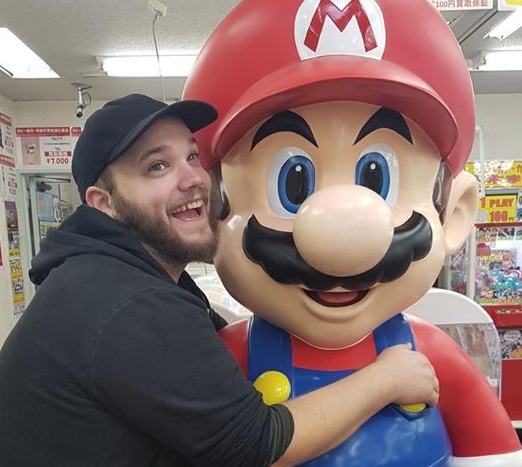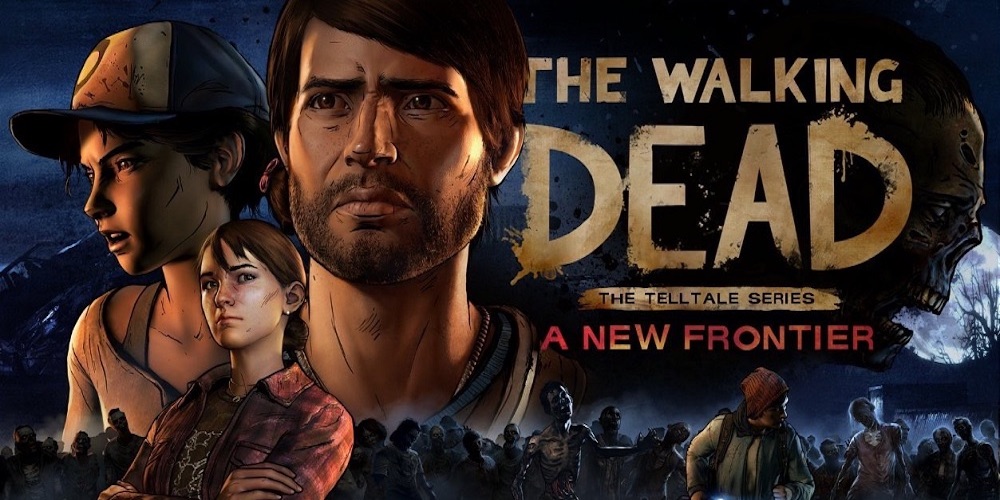
Zombies in digital media have reached saturation point, which should be glaringly obvious to anyone that plays video games. There was a period where every developer and their slavering zombie dogs were putting shuffling corpses in their games. It’s now beyond cliche to include zombies as the main threat in new games, and even zombies-that-aren’t-zombies-but-they’re-still-basically-zombies are kind of boring as an idea. Despite this, telltale’s The Walking Dead series has continued to impress (though less so with “Michonne”) since it started in 2012. Personally, I’ve not read the comics, and I’ve only seen the show through to the end of season one, which makes the game my only reference point for the world created by TWD. That being said, TWD is one of the best zombie apocalypse worlds I’ve seen portrayed in video games.
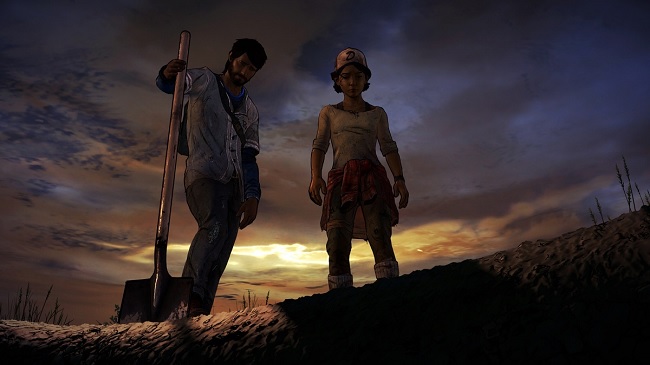
Funnily enough, it’s because the zombie’s are mostly secondary to the human characters.
This is the third season in an ongoing but somewhat disconnected story, which is a long time for people to hold onto save files from literally years ago. Like myself, I’d wager that not many people will still have seasons one and two installed. Previously, the save file carried over (this includes for 400 Days), allowing your past choices to influence the season you were about to play through, keeping the story consistent for your time with the series. This time, Telltale have provided the option of “re-telling” your story by highlighting the most critical choices from the previous two seasons, asking players how they responded. I’d consider it a testament to the series’ quality that, despite the amount of time that’s lapsed, I was able to clearly recall everything.
Though A New Frontier doesn’t specify how long, it’s clear that there’s been quite a sizeable gap between it and season two. If season one was about humanity reeling from the impact of the zombies, and season two was about adjustment to this new world, then season three is about its settlement. Survivors are mostly portrayed as being either loners, or as part of some sort of town gathering, as opposed to rag-tag groups. Groups are unusual, born from difficult circumstances, and this is the situation in which we find the new player character: Javier (or Javi, as he’s called.) The family of Javi’s brother is in his care: His sister-in-law, niece, and nephew. The game wastes no time in establishing that, whether endearing or infuriating, family means a lot to Javi.
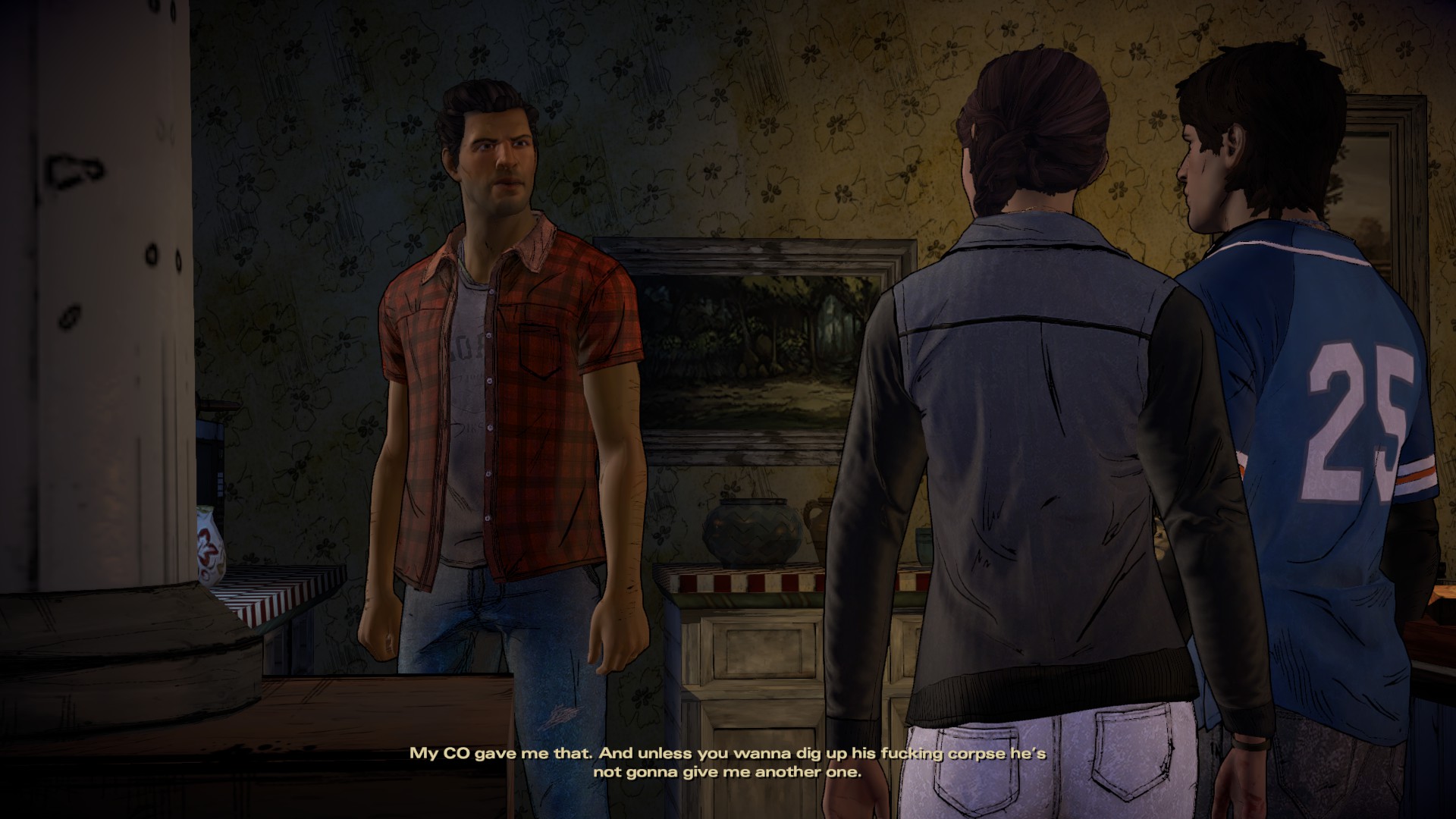
Funny you should say that, David, because he might just claw his way out on his own.
The best part about the player character protagonists in TWD is that every player-made decision still fits to their established personality. During the second season, for instance, Clementine would primarily act according to whatever ideals were passed onto her by Lee. If he taught her that people were important, then whether hostile, protective, or indifferent, she was written in such a way that it was reflective of her keeping the group’s best interests at heart. What changes is how you react to situations at hand, the course of action you decide to take based on given events, which further develops that character personality. Of course, all convictions should be tested, and late game occurrences hit so hard because the nature of the protagonist has been re-molded by the player by that point. It’s so easy to empathise with these characters because you haven’t just spent a lot of time with them, they’ve become an emotional extension of yourself.
As you might have gathered from the game’s promotional material, Clementine also makes a return as a major character, and her presence makes me genuinely uncomfortable. After spending so much of the first season protecting her, and then actually playing her in the second, I couldn’t help but implicitly trust her in the third. The first two episodes consistently put Javi in a position of whether or not to take her side on something, and I went along with her every time. As events unfold, and you learn more about what Clem has been up to during the gap in the story, you’re obviously pushed to question whether or not this is wise to do. However, I wanted to believe that the little girl I’ve guided for so long didn’t turn out to be a complete shit-bag, at least not intentionally. So, I didn’t. I couldn’t. TWD’s biggest strength as a video game series is its ability to make you connect with its characters, and make you want to stick by those feelings.

For instance, I feel like I cannot wait to kill this douchebag, if and when the time comes.
TWD’s biggest weakness, and always has been, is its gameplay design. When you’re given complete control of a character’s movement, you’re restricted to such a small area, and with very clearly defined goals that there’s no sense of exploration. The gameplay elements aren’t set out as puzzles to be solved, your inventory rarely comes into play, if ever. It’s a case of making your character walking up to objects and people, then watching a cutscene of them doing something that you could be doing yourself. There’s no challenge, it isn’t fun, these sections don’t do anything to make the story more impactful, nor does it really change the outcome in a significant way that’s tangible to the player.
Action sequences with limited character control are just as bland, sometimes worse, as they’re basically boiled down to little else besides QTEs. Since most of the game is presented as an interactive drama, you’re usually off your guard and can easily miss the QTE cues. Sometimes this doesn’t matter, as you’ll either die then watch the last few seconds again before getting it right, or your character adjusts without any damage or penalty. Sometimes, it leads to people outright dying, or something else equally catastrophic, and there’s never any way to tell in advance if these moments will be critical or not. Sudden, shocking events that are written as a planned part of the story are impactful because they can be framed to feel that way. When it happens because I wasn’t ready to smash a random key at any given moment, it feels frustrating and unnecessarily tense.
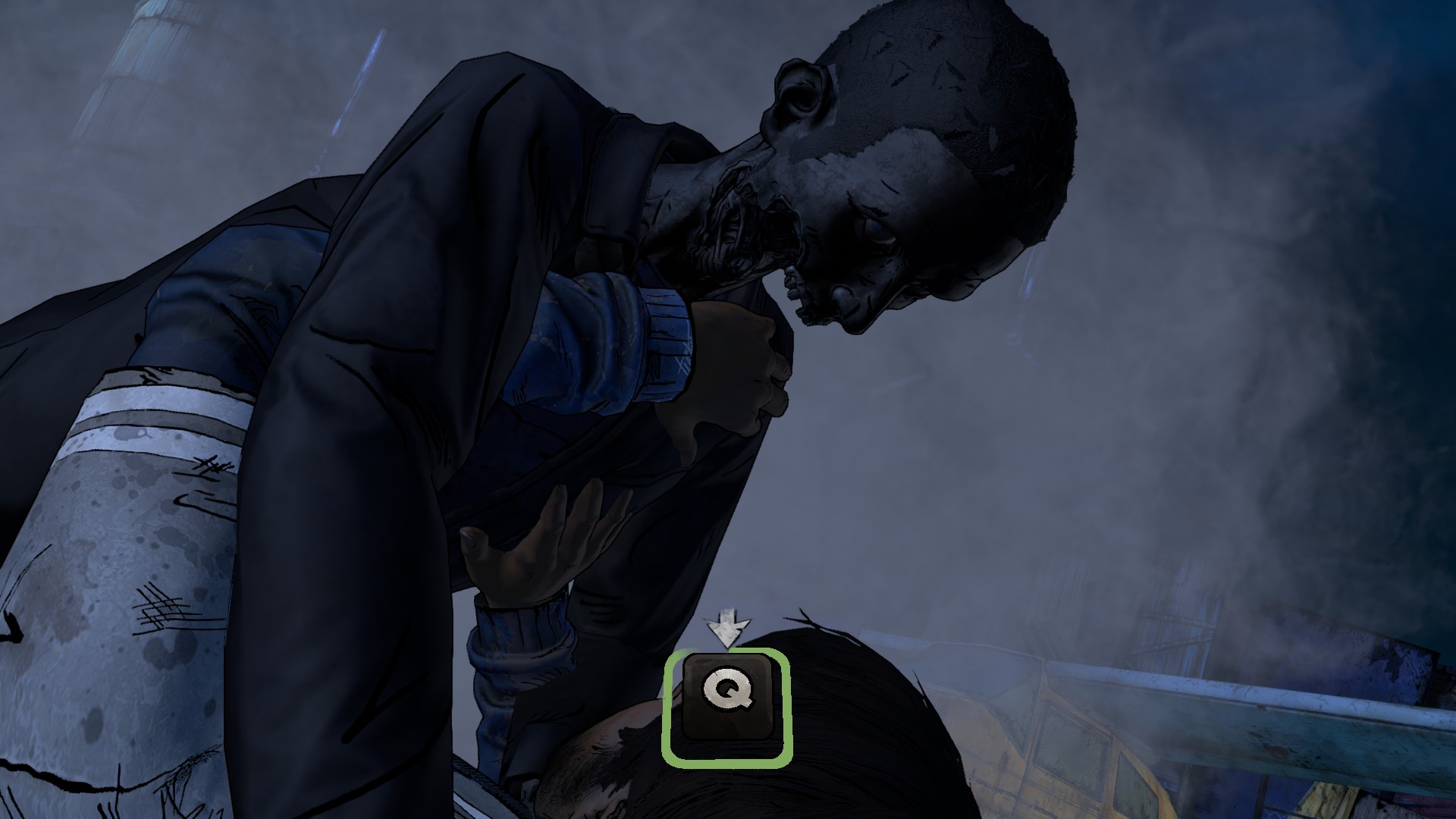
This, Telltale, no more of this.
Honestly, the best moments of A New Frontier happened when I was only in control of what Javi was saying, or telling him to do, not when I was directly controlling him. TWD shines brightest as an interactive drama, and I’m okay with that, I go into these games with that expectation in mind. The simple gameplay elements might’ve been passable while the series was finding its feet but they were never very enjoyable, and they haven’t developed over time. If it’s too hard to make an episodic game that has a branching narrative combined with involved, engaging gameplay elements, then don’t try to put in “pretend” gameplay as a solution. The story is great, focus on that – I’m sick of beating the Q button like I’ve been drinking all night, and it asked me to take out the garbage.
This isn’t just a problem with TWD, it’s something that’s come up in every interactive drama of theirs that I’ve played. There’s a reason that GameCloud has changed coverage of these series’ from being episode-by-episode, to an initial first impressions and a final retrospective review. Without dissecting the story of each episode, which immediately encroaches on spoiler territory, there’s precious little else to talk about because, as a game, nothing exciting happens. Even this article covers a lot of points I’ve spoken about before, and not for a lack of giving the overall series some further thought. If Telltale want to include gameplay elements, they have a lot of work to do before they consider releasing another series like this.
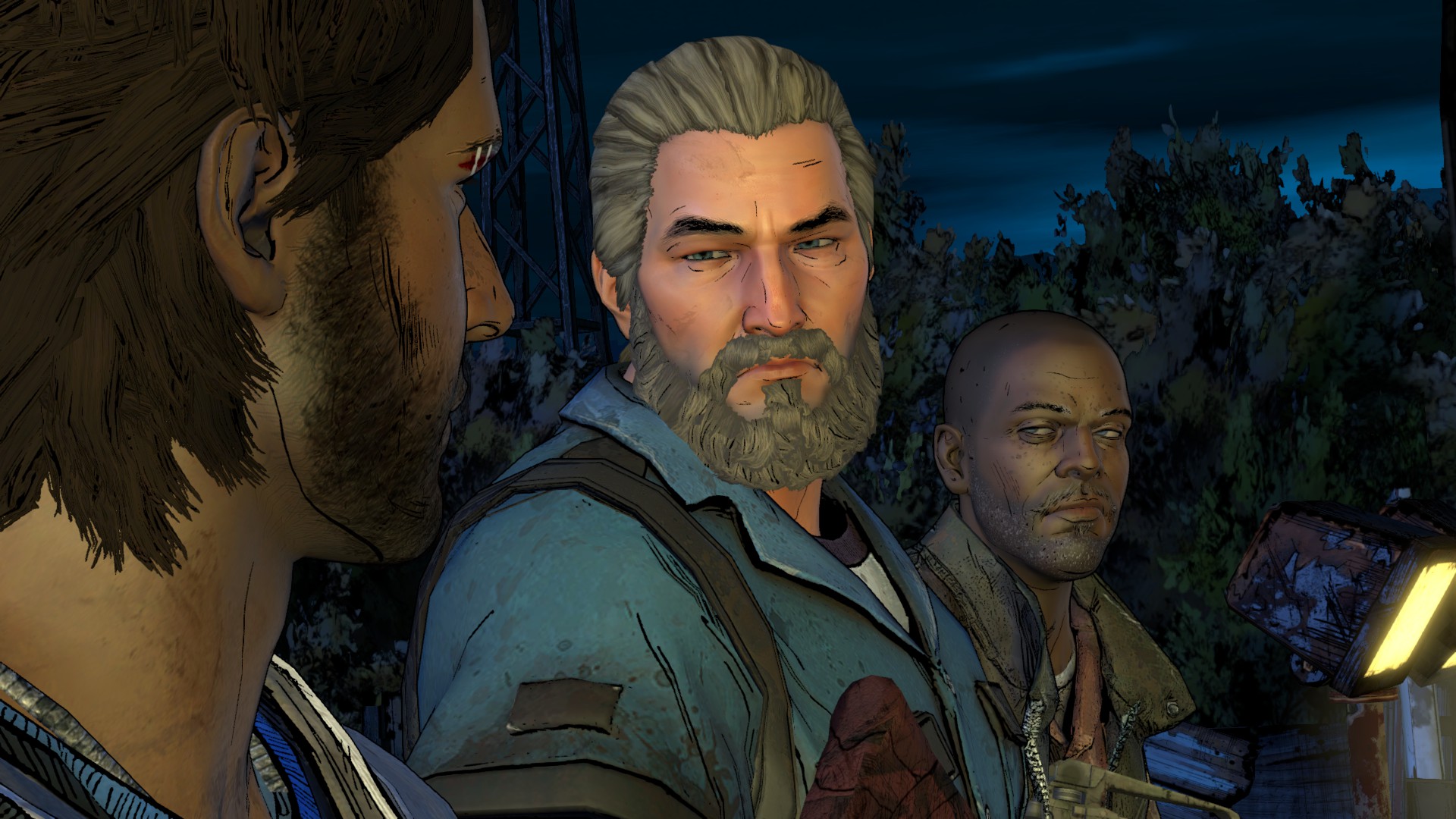
Any time a character gets a serious look on their face while holding a gun, you just know some QTEs are right around the corner.
So far, I’m enjoying the narrative of TWD: A New Frontier, the way the world has progressed beyond the simple “live another day” mentality, and the way it plays with your preconceived notions of individual characters. It’s by far and away what the series does best, and the storyline of the game is tied in well to that concept. The gameplay and design of TWD: A New Frontier, however, still leaves a lot to be desired, as it always has. Telltale seems to have a reluctance to improve or change anything in this regard, which is a disappointment considering that their alternative is to leave in the same dry, frustrating gameplay that they have. Given that much of this season has likely already been completed, I don’t see the design changing dramatically between now and episode five. I just hope that the story they’ve created is enjoyable enough to overlook the weak points.

